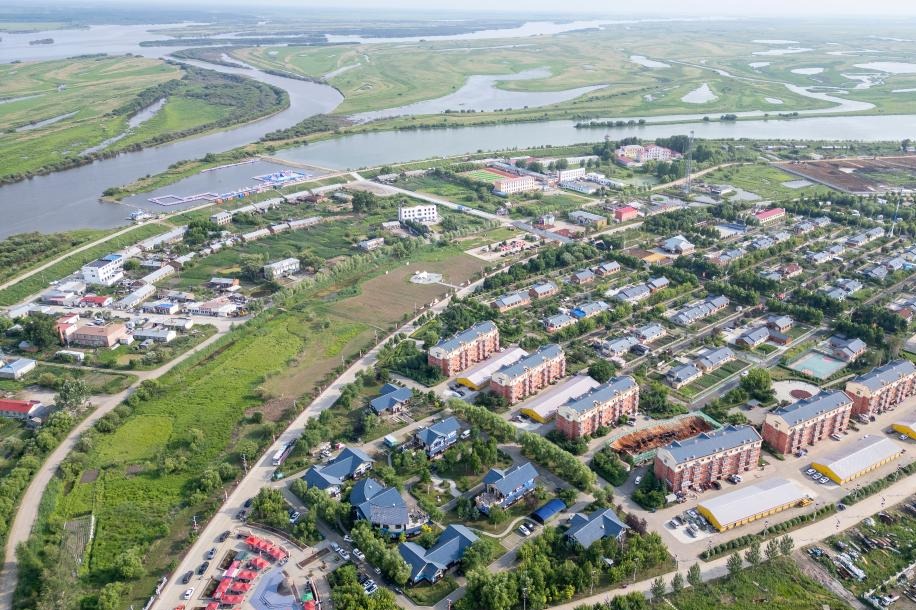Institutional opening-up for global integration


China was the world's largest exporter and second-largest recipient of foreign direct investment in 2023, marking a milestone in its opening-up policy. To further integrate into the global economy and contribute more meaningfully to global development, the recent third plenary session of the 20th Central Committee of the Communist Party of China outlined five key areas for the next phase of opening-up: steadily expanding institutional opening-up, deepening foreign trade structural reform, further reforming the management systems for inward and outward investment, optimizing the layout for regional opening-up, and refining the mechanisms for high-quality cooperation under the Belt and Road Initiative.
Institutional opening-up means a higher level of opening-up. It aims to align domestic institutional frameworks with international trade and economic rules, and break down systemic and regulatory barriers to enable the free flow and efficient allocation of resources between domestic and international markets.
First, institutional opening-up is set to become a driver of high-quality development. As global trade rules evolve, traditional models of opening-up are no longer sufficient to promote foreign trade. Institutional opening-up focuses on the alignment and coordination of rules, standards, and systems, helping optimize the domestic business environment, improve economic efficiency, and provide robust institutional support for China's foreign trade, investment and economic cooperation. This will facilitate the shift from high-speed growth to high-quality development.
Second, institutional opening-up will enhance the stability and prosperity of the global supply chains. As the world's largest manufacturing country and the second-largest economy, China plays a critical role in the global supply chains. By deepening institutional opening-up, China can strengthen cooperation with other countries, and help integrate and optimize the global supply chains, contributing to global economic stability and fostering shared prosperity.
Third, institutional opening-up will also help reform the global economic governance system. China has always advocated for a multilateral trading system centered on the World Trade Organization, promoted regional trade agreements such as the Regional Comprehensive Economic Partnership, and sought the membership of free trade agreements like the Comprehensive and Progressive Agreement for Trans-Pacific Partnership and the Digital Economy Partnership Agreement. By deepening institutional opening-up, China aims to influence global economic governance and contribute to the creation of a fairer international economic order.
China is now a leading player in international trade. In 2023, its exports reached $3.38 trillion, much higher than the second-largest exporter, the United States. According to the WTO, China has become a major trading partner of more than 120 countries and regions, maintaining its position as the world's largest goods trading country for several years.
Besides, China's trade network continues to expand. By the end of 2023, China had signed 22 free trade agreements with 29 countries and regions, which account for about one-third of its total foreign trade. The trade volume under the framework of the RCEP reached 12.6 trillion yuan ($1.73 trillion) in 2023, a 5.3 percent increase from the year before the agreement came into effect in 2022. China's exports to the other RCEP member states grew by 16.6 percent, 4.6 percentage points higher than its overall export growth during the same period.
China is also a major international investor. In 2023, the country ranked second globally in direct investment destination (after the United States) and third in direct investment sources (after the US and Japan). Despite a notable decline in global cross-border investment, China's share of both FDI and ODI has significantly increased.
In the financial sector, China has gradually eased market access restrictions for foreign investment, including removing limits on foreign ownership in banking and insurance institutions. By the end of last year, foreign banks and insurance firms had established many branches in China, significantly increasing their total assets and market share.
Yet China should engage in more cooperation negotiations to create an environment conducive to international trade. The CPTPP is a high-standard free trade agreement, and China could leverage the RCEP negotiation mechanism to align the rules on e-commerce, intellectual property rights protection and competition policy with those of the CPTPP.
Further, by joining the DEPA, a crucial digital economy agreement, China can play a bigger role in global digital governance.
Making China's trade rules compatible with new global trade rules and exploring pilot programs in specific industries or regions are important tasks the government needs to fulfill. And by improving the negative list management and further opening up the financial market, the government can benefit China's financial sector. China should also expeditiously establish a cross-border payment system and strengthen financial security mechanisms.
Last, China should continue to implement existing multilateral and bilateral trade agreements, and promote sustained and healthy growth in foreign trade and investment. The RCEP has already reduced regional trade costs and improved supply chain links, bringing tangible benefits to China's trade partners. And by refining the mechanisms for high-quality cooperation under the Belt and Road Initiative and leveraging existing agreements, China can harness advanced resources, eliminate barriers to marketization, and unleash its vast market potential.
The author is deputy secretary-general of the Peking University HSBC Business School Think Tank.
The views don't necessarily reflect those of China Daily.
If you have a specific expertise, or would like to share your thought about our stories, then send us your writings at opinion@chinadaily.com.cn, and comment@chinadaily.com.cn.


































